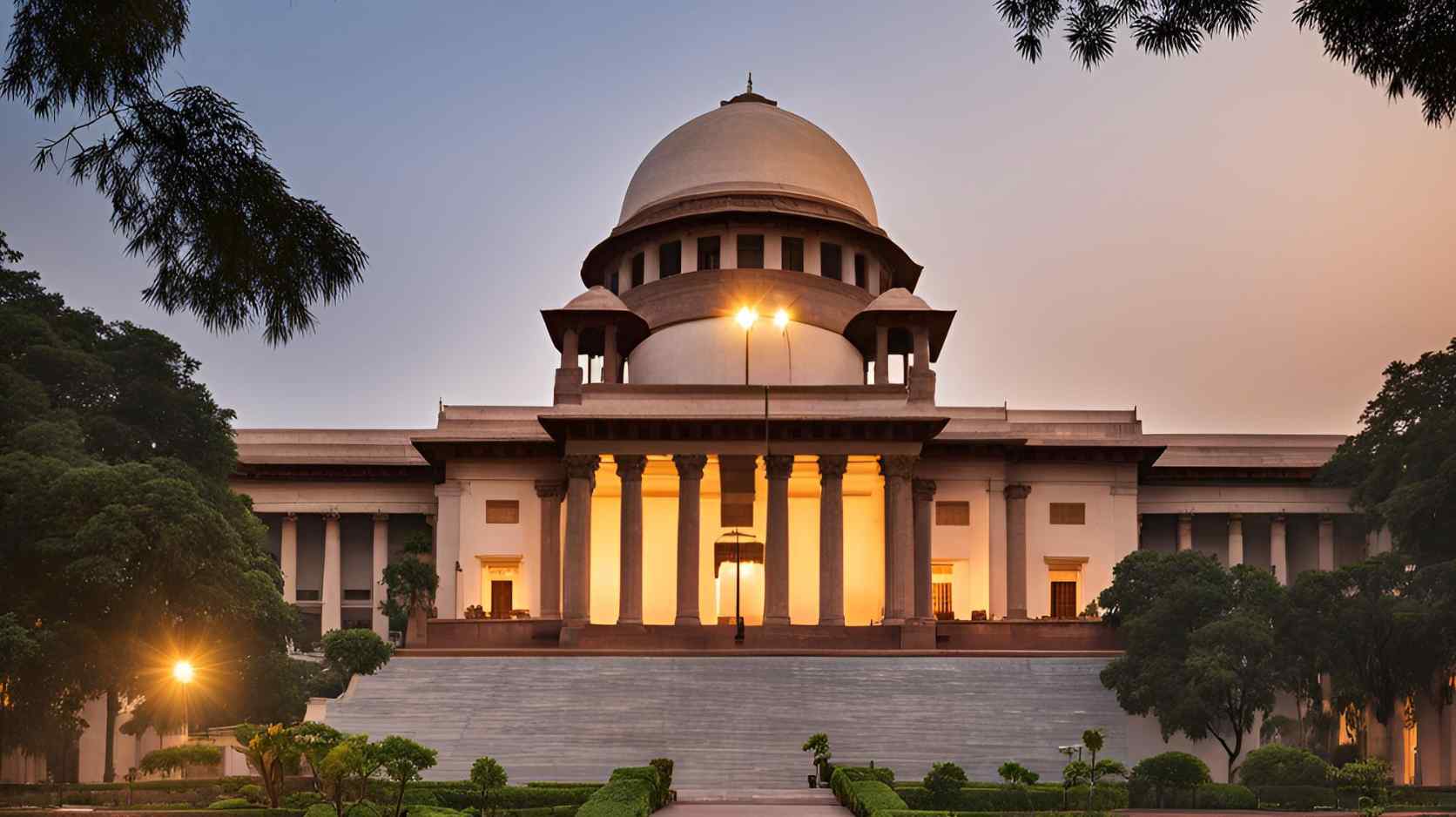The Supreme Court of India recently held a tenant guilty of contempt of court for failing to vacate a rented premises despite a prior order directing him to do so.
The bench, comprising Justices JK Maheshwari and Rajesh Bindal, underscored the importance of respecting court orders, stating that contempt of court undermines the integrity of the judicial system and poses a direct challenge to the rule of law.
Also Read: SC Rejects Plea to Recognize Agra as UNESCO World Heritage City
Supreme Court Convicts Tenant for Contempt: A Strong Message on Judicial Integrity
The tenant, Prithviraj Vardichand Jain, had been embroiled in a long-standing eviction dispute with his landlord, M/s Sitaram Enterprises, over shop spaces in Mumbai.
The eviction suits were first decreed in favor of the landlord in 2015, and the Bombay High Court upheld the decision in 2022.
Jain’s attempts to challenge the ruling were rejected by the Supreme Court in June 2023, after which he was granted nine months to vacate the premises, contingent on his filing an undertaking with the court.
However, when the tenant defied the Supreme Court’s clear orders and refused to vacate the property, the landlord was forced to file a contempt petition.
The Court had previously warned Jain that any breach of his undertaking would trigger contempt proceedings. Upon his failure to appear in response to notices issued in the contempt petition, a bailable warrant was issued.
Even after the execution of the bailable warrant, Jain failed to appear, prompting the Court to issue a non-bailable warrant for his arrest.
Contempt of Court
“Disregarding a Court’s order may seem bold, but the shadows of its consequences are long and cold,” observed the Supreme Court bench, reiterating the importance of upholding judicial orders.
The Court emphasized that contempt of court is a serious offense, as it not only disrespects specific orders but also questions the Court’s authority and undermines public confidence in the judicial system.
The bench further explained that the power to punish for contempt, enshrined in Article 129 of the Indian Constitution, is essential for maintaining the rule of law. The ability to address contempt ensures that the judiciary’s authority is respected and that justice is administered without obstruction.
“By penalizing contemptuous conduct, the legal system reinforces its legitimacy and ensures that court orders are respected and adhered to,” the bench added.
Also Read: Supreme Court Stays NGT Cap on Dhol, Tasha Performers for Pune Ganesh Visarjan
Tenant’s Apology Fails to Sway the Court
Upon finally appearing before the Court, Jain, a senior citizen, sought leniency by offering a tearful apology, citing his poor financial condition and the need to support a large family.
He also pleaded for more time to vacate the premises, noting that his curative petition was still pending. However, the Court rejected his explanations, stating that filing a curative petition was not a valid ground for defying the eviction order.
While the Supreme Court acknowledged Jain’s advanced age, it refused to overlook his willful disobedience. As a result, he was found guilty of contempt.
In a rare display of leniency, the Court sentenced him to one day of imprisonment, to be served until the rising of the Court. Jain was also ordered to vacate the premises within one week, failing which the police were directed to take forcible possession of the property.
Additionally, the tenant was held liable for the costs incurred by the execution of the non-bailable warrant and the recovery of the premises.
Upholding the Judicial System’s Integrity
This case serves as a stark reminder that contempt of court is a serious offense with far-reaching consequences. The Supreme Court’s ruling reinforces the importance of respecting judicial orders and the Court’s power to penalize those who undermine its authority.
By punishing contemptuous conduct, the Court safeguards the rule of law and ensures that justice prevails.
Case Details
- Case Title: M/s Sitaram Enterprises v. Prithviraj Vardichand Jain
- Bench: Justices JK Maheshwari and Rajesh Bindal















